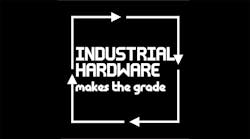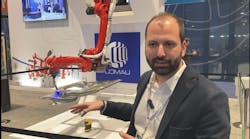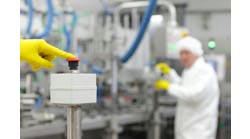So, what’s in a black box? Seemingly, a lot, according to Ed Boutilier, founder and former CEO of Stealth Computer, and Omi Sahota, marketing director of GroupMobile.
Stealth Computer is focused on panel or rack-mounted stationary devices, while GroupMobile, a Route1 company, is focused on mobile devices such as laptops and tablets.
I asked these two gentlemen some questions about industrial computers and why the right product should be used for the right application.
There is a definite need for industrial computing hardware, according to both, and it is primarily based on environmental specifications. The term they both use is “rugged.”
What does rugged really mean? Well, it refers to the ability of industrial hardware to respond to the user’s need for a 100% availability level. It needs to work, and the design of the hardware ensures that the device is ready at all times.
Boutilier suggests that, since heat is the worst enemy of any electronic device, most industrial solutions have superior system cooling to keep the internal temperatures at consistent levels.
I have seen many instances where commercial-grade computers are used in applications where they shouldn’t, and the failure rates accentuate the need for a better solution. I asked that specific question: Why not use a commercial-grade device?
Sahota’s comment was interesting. He suggested that his company’s industrial hardware can operate in less-than-hardware-safe conditions. I take that to mean that power issues and the manhandling that the device may endure would not be conducive to the success of commercial devices.
An industrial device conforms to NEMA specifications and can operate in high-temperature environments. They are also high-performance devices that can run in most environments 24/7. Boutilier also suggests that shock and vibration issues can take down commercial devices in a hurry. Most installations would be considered hostile.
I asked what the most important component of an industrial device would be. Fanless design is paramount so that contaminants do not enter the electronic environment. Look for devices that use the whole chassis as the system heat sink. Again, cooling is most important.
Sahota suggests that it is the performance of the device that is most important. Being available always is the most important characteristic, which also means that the system design must support the claim of availability. It is important to note here that the mobile device needs to be a bit more responsible for the misuse of the device, such as the dropsies.
I have had customers who have chosen to purchase standard laptops and computers, including refurbished devices, because they didn’t want to pay the price of the real deal. While not all of these stories have bad endings, some do. You get what you pay for; both gentlemen agree with this.
Sahota suggests that part of the benefit of dealing with a reputable company is that the technology requirement for the customer’s application is determined, so that the device is just right for the job at hand, which is part of the overall benefit the customer will receive.
Boutilier says there are times where the customer might overpay for the technology because the device has been oversold. This really means the customer must be aware of the application needs.
I have seen applications where a standard Windows 10 desktop would suffice, but the customer was sold a Windows-based rack-mounted server.
Everyone wants the application to run at peak performance at all times. That comes at a cost. If it doesn’t run at peak performance, the cost is much greater since the application suffers.
Sahota states that the commercial and industrial markets are completely different and therefore priced differently due the variability of design and functionality. As previously mentioned, the manufacture of industrial devices takes more effort at all stops.
Boutilier suggests that industrial hardware costs more due to the aforementioned design and manufacturing issues, but also the fact that volumes are much lower than commercial hardware. He also mentions something near and dear to my heart—support.
How often have you called an industrial supplier of computer hardware and not been able to talk to a person? The commercial support lines have been closed for a while now.
By dollar-cost-averaging your industrial device purchase over the time you expect it to operate, I think you may even find that the cost per year would in fact be less than commercial hardware.
Your application has a budget, and so many times industrial hardware is frowned upon strictly because of the price difference. It is important to take a higher-level approach to solutions, choose a worthy supplier and create those relationships that bear fruit for years to come.






